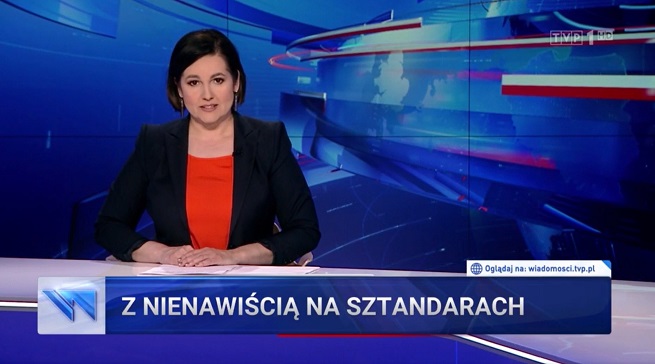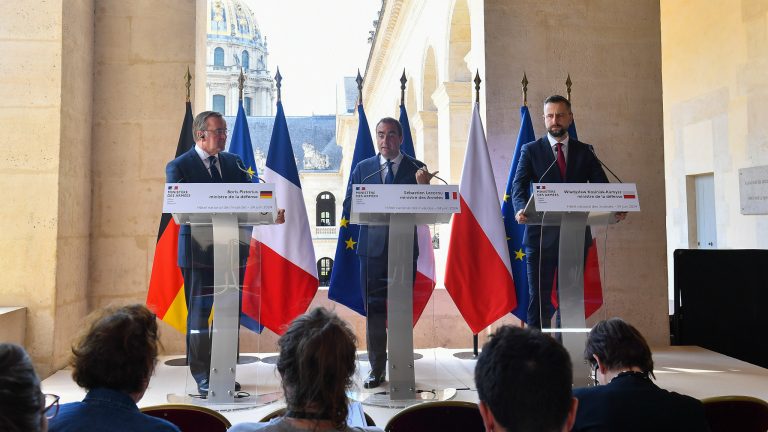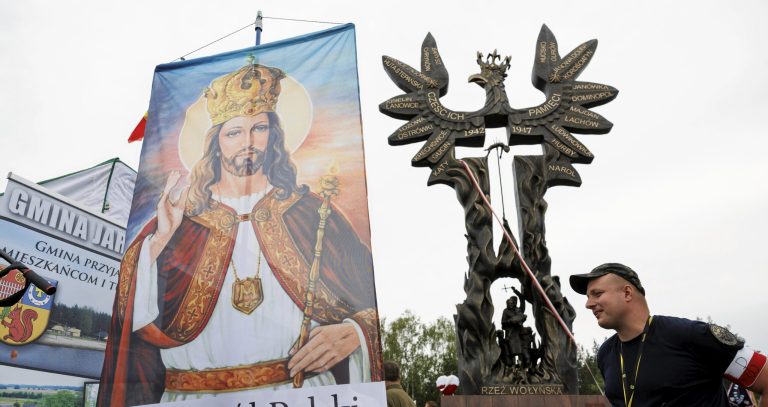Polish election result: ruling PiS party top but opposition have majority
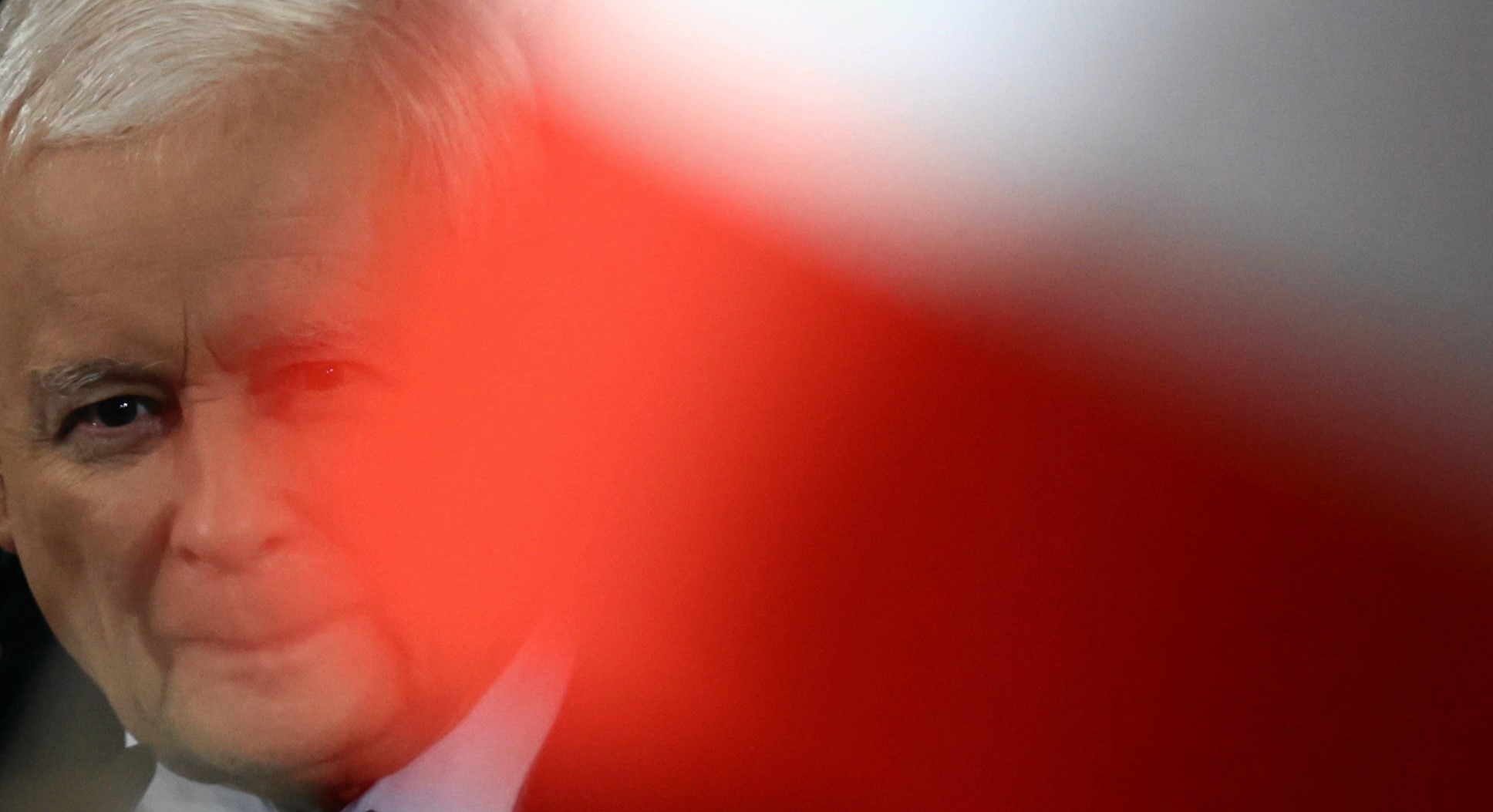
The official results from Sunday’s Poland’s parliamentary elections show that, as was found in the exit poll, the ruling national-conservative Law and Justice (PiS) party won the largest share of the vote but has lost its majority in parliament.
Meanwhile, the mainstream opposition – the centrist Civic Coalition (KO), centre-right Third Way (Trzecia Droga) and The Left (Lewica) – together have a majority that would allow them to form a government. The far-right Confederation (Konfederacja) finished fifth.
With 100% of votes now counted, the National Electoral Commission (PKW) has confirmed the share received by each group standing in the elections and, on that basis, the number of seats each has received can also be calculated. They are as follows:
Law and Justice (PiS): 35.38%, 194 seats
Civic Coalition (KO): 30.70%, 157 seats
Third Way (Trzecia Droga): 14.40%, 65 seats
The Left (Lewica): 8.61%, 26 seats
Confederation (Konfederacja): 7.16%, 18 seats
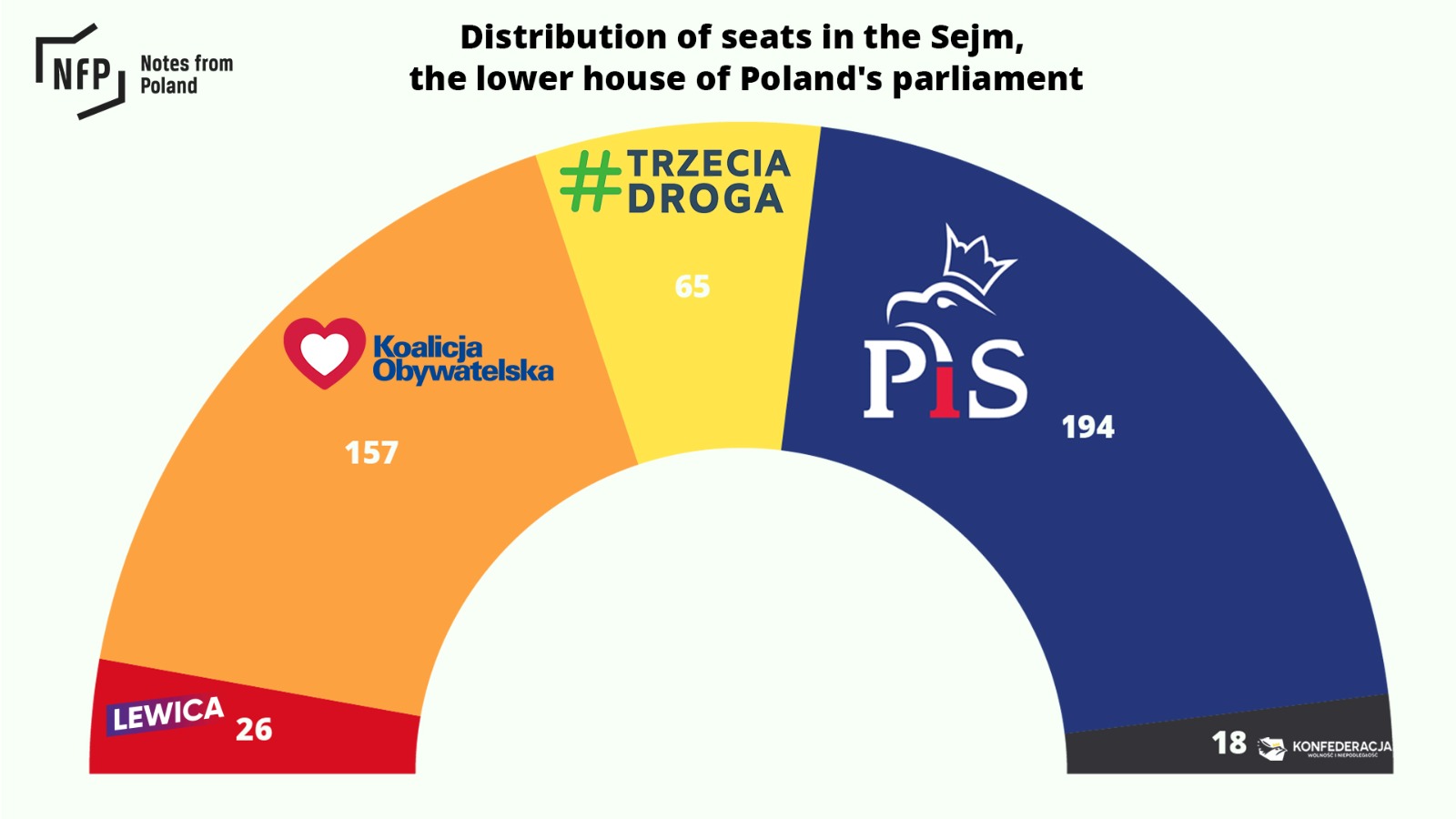
That result gives KO, Third Way and The Left – who made clear before the elections that they would seek to form a governing coalition – a combined share of 248 seats, which is a comfortable majority.
However, it may be some time before any government is formed. The president, Andrzej Duda, must call a first session of the newly elected parliament within 30 days of the elections and he also designates a prime minister.
Traditionally, the president’s choice is a figure from the largest party, which in this case is PiS. Duda is also a former member of PiS and has generally been an ally of the PiS government since it came to power in 2015, shortly after he was himself elected as president.
Five conclusions from Poland’s elections:
1. Tusk remains a formidable force
2. Opposition strength in diversity
3. Policies and positivity win elections
4. An uncertain future for PiS
5. The far right peaked too early
Read our full analysis here ⬇️ https://t.co/KlH388CIXW
— Notes from Poland 🇵🇱 (@notesfrompoland) October 16, 2023
The designated prime minister then proposes a government, which is appointed by the president. It presents a programme and a vote of confidence is held in the Sejm.
If a majority in the chamber votes in favour of the new government, then the process is complete. If not, parliament seeks to pick a new candidate for prime minister and hold a new vote of confidence in their proposed government.
If that fails, the president has another chance to propose a prime minister. Should that final attempt fail, the president must dissolve parliament and call new elections within 45 days.
A selection of charts from Poland’s election yesterday showing how Poles voted overall – giving the opposition a majority – as well as by age, gender, level of education and place of residence, according to the exit poll https://t.co/ecAdQcsoSJ
— Notes from Poland 🇵🇱 (@notesfrompoland) October 16, 2023
For now, Duda has given no hint as to which party he would give the first chance at forming a government.
The current PiS prime minister, Mateusz Morawiecki, has argued that it should be his party. A senior PiS figure has suggested holding coalition talks with the Polish People’s Party (PSL), which is part of Third Way.
But PSL’s leader, Władysław Kosiniak-Kamysz, has ruled out any such arrangement. He called on Duda to hold talks with all parties and then pick a candidate for prime minister who has a realistic chance of forming a government that can win the Sejm’s support.
Despite exit polls indicating that the opposition now has a majority, the ruling PiS party has insisted it will try to form a coalition to remain in power.
But PSL, a party cited as a potential partner by a PiS figure, has unambiguously ruled out the idea https://t.co/7fQ2N9pfqo
— Notes from Poland 🇵🇱 (@notesfrompoland) October 16, 2023

Notes from Poland is run by a small editorial team and published by an independent, non-profit foundation that is funded through donations from our readers. We cannot do what we do without your support.
Main image credit: Jakub Porzycki / Agencja Wyborcza.pl

Daniel Tilles is editor-in-chief of Notes from Poland. He has written on Polish affairs for a wide range of publications, including Foreign Policy, POLITICO Europe, EUobserver and Dziennik Gazeta Prawna.


